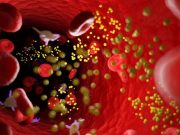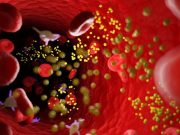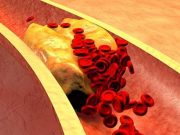Tag: Heart / Stroke-Related: High Cholesterol
Screening Could Help Identify Familial Hypercholesterolemia
For adults aged 20 to 39 years, clinical criteria alone would yield 1.3 cases per 1,000 screened; adding genetic testing would increase the yield to 4.2 cases
Espresso Consumption Linked to Increase in Serum Total Cholesterol
Consumption of three to five versus zero cups of espresso linked to increased S-TC in women and men, with greater increase for men
Panel Addresses Ezetimibe, PCSK9 Inhibitors for Reducing CV Events
Guideline shifts focus from emphasis on LDL cholesterol targets to individualized approach for lowering overall cardiovascular risk
More Intensive LDL-C Lowering May Cut Recurrent Stroke Risk
More intensive LDL-C-lowering with statin-based therapies linked to reduced risk for recurrent stroke for patients with evidence of atherosclerosis
Nutrient-Laden Snacks Can Meaningfully Cut Cholesterol
Consumption of a suite of ready-to-eat bioactive foods tied to 8.8 percent drop in LDL cholesterol in four weeks
AHA: Better Management of High Cholesterol Needed in Young Adults
A substantial number of young adults with moderate or severe hypercholesterolemia do not achieve guideline-directed reductions in LDL-C
Walnut Intake Linked to Modest Decrease in LDL Cholesterol in Seniors
Significant decreases in total cholesterol, LDL-C, intermediate density lipoprotein cholesterol, with no increase in weight
Higher Maternal Lipid Profile Tied to Congenital Heart Disease in Offspring
Doubled risk seen for high triglyceride, total/high-density lipoprotein, and apolipoprotein-A1
AHA Says Up Physical Activity for Mildly Elevated BP, Cholesterol
Assess and prescribe physical activity for all patients, including those with elevated BP, cholesterol who are at mild-moderate risk
Provider Teams Outperform Solo Care for New-Onset Chronic Disease
Among solo providers, there was little difference in care management and outcomes between physicians, nonphysicians














